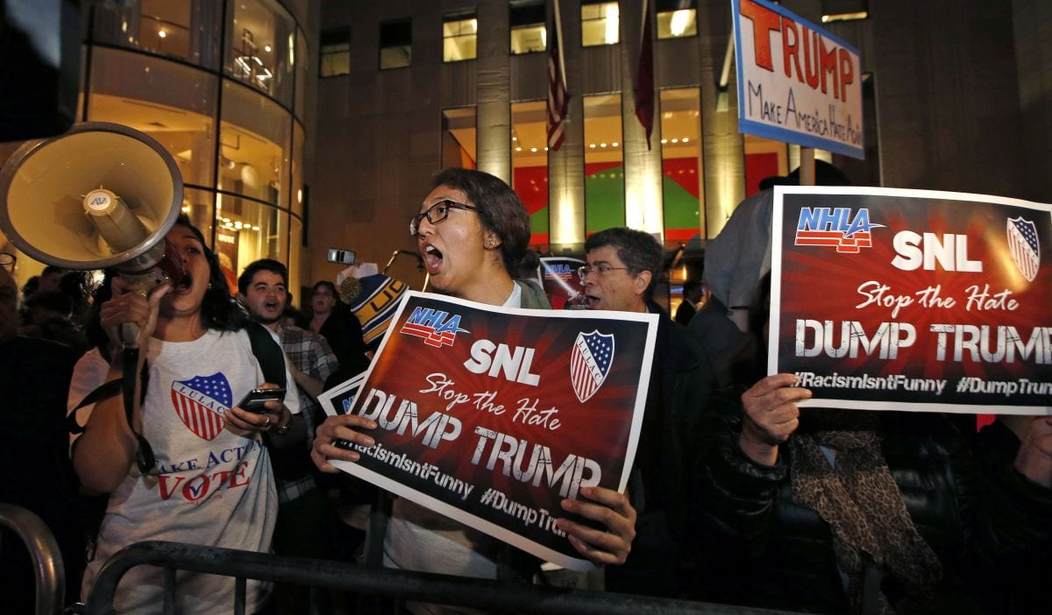Crossposted from Asia Times
It’s still a horse race, but only just: Donald Trump’s Super Tuesday victories in Georgia, Alabama, Tennessee, Virginia, Arkansas and Massachusetts outweigh the Ted Cruz victory in his home state of Texas and neighboring Oklahoma. The Republican Establishment will not close ranks around Cruz as the last candidate capable of beating Trump. Marco Rubio’s consolation price was the Minnesota caucuses with 37% of the vote.
Americans are shrewd. You can’t spit on them and tell them it’s raining. They know the game is rigged against them. They know it’s rigged the same way that they know a lottery is rigged: There aren’t any winners. They know that they are downwardly mobile because they aren’t upwardly mobile. Americans don’t mind playing against bad odds–they play the lottery all the time–but they think that they are playing against zero odds. Ordinary Americans had an outside chance to get rich until 2008. Now they have no chance at all.
Upward mobility is America’s gauge of well-being. It’s not the decline of median family income that gets under Americans’ skin, but the perception that the elites have pulled the ladder up behind them. During the quarter-century after Ronald Reagan’s inauguration, it was only a slight exaggeration to say that someone in every family got rich. They bought a cable television franchise, started a website, got some stock in a high-flying tech company, flipped real estate, or ran a small business that became a big business. Inequality didn’t bother Americans as long as they had a chance at a winning ticket–not necessarily a fair chance, but at least the kind of chance that paid off occasionally for ordinary people. As long they could see that people like them were becoming rich, they kept playing the game.
Poor people buy overpriced lottery tickets and rich people buy overpriced insurance for the same reason: the poor overpay for the chance to become rich, and the rich overpay to make sure they won’t become poor. As the distinguished Canadian economists Reuven and Gabriele Brenner argue, social mobility is the secret of economic behavior. People don’t count the pennies in their pay packet: the poor look for a path to middle class security, and the affluent insure themselves against the slippery slope back to poverty.
You can’t get rich any more in America. The dot.com bubble was a delusion, to be sure, but so many people made big money that even Mike Doonesbury briefly became a dot.com millionaire in the eponymous cartoon. Flipping houses with next-to-nothing down during the subprime bubble years of the George W. Bush administration enriched millions of households. Bubbles they were, but they were democratic bubbles. The markets provided leverage for the masses. The stock market bought companies run by 20-year olds in cutoff jeans and flip-flops, and the mortgage market financed housewives as if they were real-estate magnates. Capital, also known as other people’s money, is what makes capitalism capitalism. Nobody gets rich on IRA payroll deductions. The housewife flipping condos in Florida, to be sure, abused other people’s money as surely as the subprime structurers. That’s not what matters. It was an equal-opportunity scam.
In 2008, the door shut on middle-class aspirations with a giant crash.
More businesses closed during the post-2008 “recovery” than opened, as I noted in a February 29 essay.
And businesses with fewer than 50 employees accounted for only 1 in 6 jobs created since 2005.
Asset prices recovered, but there was no way that ordinary folk could get in on the gravy train. Private equity firms raised billions to buy foreclosed homes and rent them to people who used to own their own homes at much higher total cost. The national homeownership rate has fallen from 69% to 64% since the crisis, and rents are rising at 4% a year, much faster than incomes.
Americans tolerate a wealthy elite if and only if they can get in on the action, too. The cartelized, corrupted, closed wealth-creating mechanism of the past eight years shuts them out. The Republican base is out for blood. They want revenge on the elites that have shut them out of wealth creation. Pace Peggy Noonan, it has nothing to do with “protected” vs. “unprotected.” It’s about wannabe’s vs. be’s. And pace Bret Stephens, it has nothing to do with what Stephens calls “a new political wave sweeping the globe—leaders coming to power through democratic means while avowing illiberal ends” including Hungary’s Viktor Orban and Turkey’s Recep Tayyip Erdogan. Americans have different demands than Turks and Magyars.
I’ve made no secret of my preference for Ted Cruz, and still hope that he can snatch victory from the jaws of defeat. He fielded an intelligent and disciplined campaign strategy which hasn’t worked out. Cruz counted on evangelical Protestants to buoy him in South Carolina, but most evangelicals voted for Trump instead. The evangelicals always have had a split personality, balancing a passion for social conservatism with the boosterism of the prosperity gospel. Evidently the evangelicals aren’t voting on conservative principles, as Cruz exhorted them to do.
Trump leapfrogged Cruz on immigration and security, offering sound-bites–build a wall on the Mexican border and stop Muslims from entering the country–that drowned out Cruz’ more nuanced positions. Cruz took stands against the Republican Establishment; Trump gave them a nonstop insult-comedy routine.
Downward mobility is the decisive issue in the 2016 elections. Unless Trump’s rivals can capture the imagination of the electorate with a vision of renewed upward mobility, Trump will take the nomination. A Clinton-Trump general election would be the dirtiest, nastiest, sleaziest and most divisive since the Civil War. In that case, God help the United States of America.













Join the conversation as a VIP Member